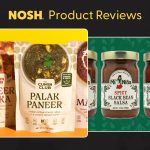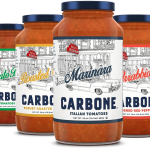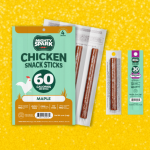CPG Giants Talk Better-For-You Innovation, Portfolio Renovation
For the second year, financial services firm Barclays held a virtual edition of its annual Global Consumer Staples Conference, inviting companies to share their business strategies and updates. During the event, which consisted of three days of presentations and Q&A sessions, executives addressed changing consumer behaviors post-pandemic and inflationary pressures, while also discussing their innovation plans to reshape their portfolios.
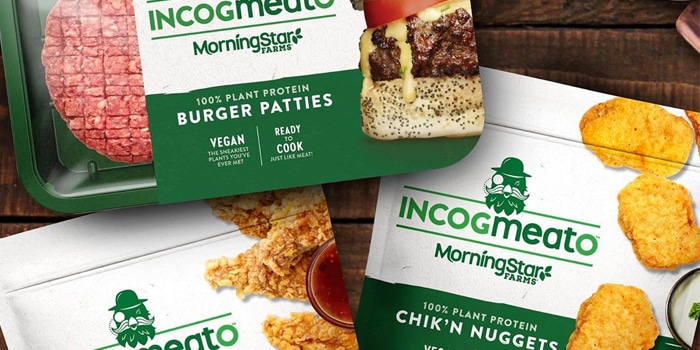
Kellogg’s Discusses MorningStar Farms and Future Frozen Plans
Much of the Kellogg Company’s presentation focused on its portfolio, which has undergone a transformation in recent years. Developed Markets Snacks serves as its largest portfolio segment with Developed Markets Cereal making up one-third of its portfolio, while emerging markets and frozen make up smaller percentages of the business.
While a smaller part of its business, the frozen segment accounted for a notable part of the company’s presentation, with GM Sara Young noting the segment “probably doesn’t get as much attention as it should.” While Kellogg’s Development Markets Frozen segment is currently the company’s smallest business unit, its brands, such as Eggo and MorningStar Farms, have a “track record of steady growth,” Young said.
The company has recently seen growth in the frozen segment accelerate, particularly with MorningStar, Young said. Though the brand currently only focuses on the “components” side of the frozen category, rather than entrees, it brought in $407 million in sales over the past year and notched 6% year-over-year growth. Young attributed the success to the brand’s wide breadth of offerings within “non-burger segments,” including plant-based poultry, meal starters, breakfast meat and dinner sausages. While the plant-based burger segment has seen slight U.S. retail sales declines year-over-year, these other segments have secured notable growth, she said, citing Nielsen data.
“This is an attractive category,” Young said. “It responds very well to brand building and innovation, and there is considerable opportunity to grow in food formats, pack formats and distribution expansion.”
Young said the company is “not sitting still” when it comes to increasing household penetration for MorningStar, and believes the many new brands entering the plant-based space will only drive consumer awareness and fuel growth for the category. Kellogg’s will also continue to add new accounts in away-from-home channels, like colleges, universities and restaurants, in order to reach new consumers, she said.
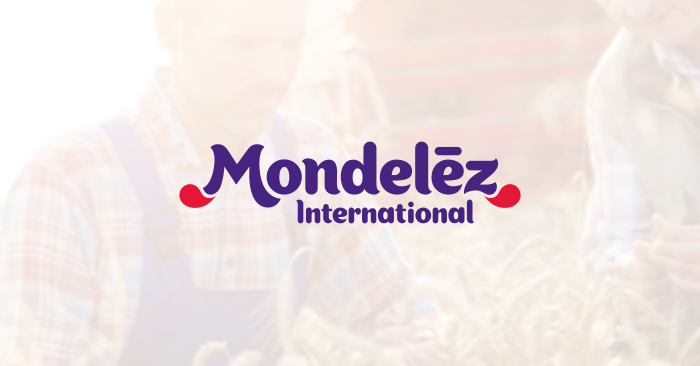
Mondelez Addresses Ongoing Factory Strike, Talks Innovation Strategy
In its presentation yesterday, Mondelez CEO Van de Put commented on the ongoing employee strike at Nabisco manufacturing and distribution facilities across five states. Beginning last month at Mondelez’s Oregon plant, the strikes have since grown to include employees at Nabisco plants in Illinois, Virginia, Georgia and Colorado. In their new contracts, employees are looking for Mondelez to address concerns surrounding overtime pay, pensions, recent factory closures in Georgia and New Jersey, and a reported plan to move some production to Mexico.
Anthony Shelton, president of the Bakery, Confectionery, Tobacco Workers and Grain Millers International Union (BCTGM), said in a statement the workers are asking Mondelez to “stop exporting our jobs to Mexico and end your demands for contract concessions.” Mondelez has said that no U.S. jobs were moved to Mexico as a result of the factory closures.
Van de Put said Mondelez had sought to “modernize” employee contracts in order to ultimately “sustain long term growth,” and the resulting strikes had “disappointed” the company. However, he added, the company’s executive team had been prepared for such a response and activated a “robust business continuity plan.” While the desired contract changes have put the company in a difficult predicament, Van De Put said they are necessary for the company to “remain competitive” and expand its production footprint beyond the current facilities in the East Coast, Midwest and West Coast.
“Our goal always has been and continues to be to bargain in good faith to reach a new contract,” he said. “Having said that, we were requesting a number of changes to the current contract. And we foresaw that it would not be an easy conversation.”
Mondelez’s most recent offer for settlement expired yesterday, according to a statement by the company, and executives will meet with the BCTGM union again next week. Van de Put said he hopes the company and employees “will come to a positive outcome” at the upcoming meeting.
Van de Put also discussed the company’s growth strategy. For the last two years, the company has focused on strengthening its core set of products and expanding into new channels such as ecommerce. Still, there continues to be room to grow within Mondelez’s main segments, especially premium, where Van de Put said the company is underrepresented. Expansion into adjacent categories like cakes, pastries and bars are also appealing, due to the synergies with existing biscuit and chocolate brands in its portfolio, he said. Wellbeing is currently a smaller segment for the company, he added, but is growing. In response to shifting consumer perceptions surrounding health and wellness, Mondelez will look to produce organic and gluten-free products as well as portion controlled products to meet a wider swath of consumer needs.
“Consumer interpretation of what is healthy has evolved quite a bit. We spend a lot of time studying, what is it exactly that the consumer sees as healthy, and it’s a more holistic view,” he said. “Consumers understand that they can consume multiple types of snacks across the day, that there is a variety of functional and emotional needs that they want to fulfill.”

Kraft Heinz Lays Out Plans to Address Inflation, Portfolio Renovation
Kraft Heinz CEO Miguel Patricio discussed how the corporation plans to grow its sales while navigating inflationary pressures and shifting consumer behaviors by reinvigorating its portfolio and investing in sales and marketing opportunities.
“In the last 18 months, we have taken bold actions to reshape our entire company and reignite growth – and we’re far from done,” Patricio said. “Our strategy to bring agility to our significant scale is working, with our operating model proving strong as we navigate both the pandemic and inflation. We are turning around iconic brands to fuel families who are enjoying more meals together at home. And we are pivoting to future growth by investing in top talent and focusing on consumer needs.”
U.S. zone president Carlos Abrams-Rivera said the company has increased its prices 4% to 5% across two-third of its portfolio, and said it may take additional actions should it accrue additional inflated input costs. With plans to carry over this strategy into 2022, executives said these changes will enable it to sustain higher consumption levels and “industry-leading” margins.
The company is also working to reshape its offerings, with Patricio stating that in CPG, portfolio management is a “constant need” due to quickly evolving consumer preferences. For example, shifting consumer sentiments were the driving force for the divestiture of its nuts and natural cheese businesses within the last year, Patricio added. At this time, the company has renovated 45% of its portfolio and has plans to reach 90% by the end of 2022, Abrams-Rivera said. Of particular interest is its Easy Meals segment and Taste Elevation business, which includes Kraft Heinz’s condiment brands, both of which Patricio said can address consumer demand for convenience meal solutions.
“We eat so different from what we were eating 10 years ago, that we have to be always managing our portfolio,” Patricio said. “And that for sure has to happen in both ways, both on divesting and but also on acquisitions. And so we are actively always looking for opportunities on both sides.”


